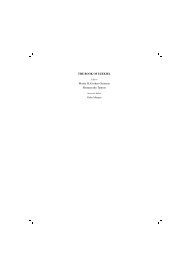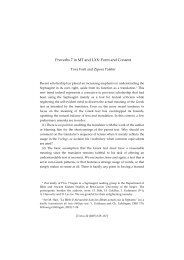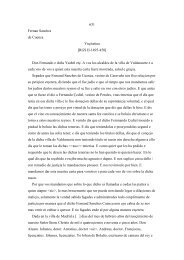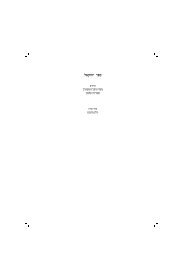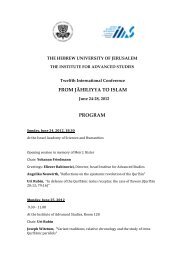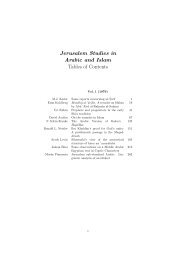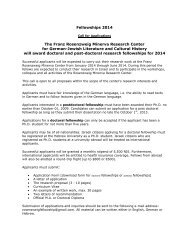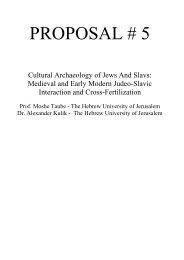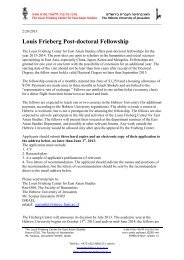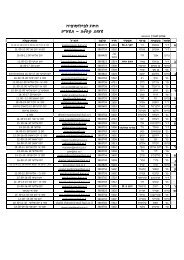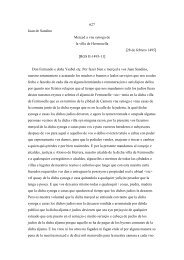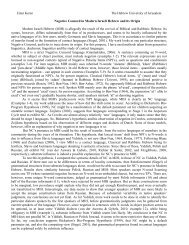Baber Johansen
Baber Johansen
Baber Johansen
Create successful ePaper yourself
Turn your PDF publications into a flip-book with our unique Google optimized e-Paper software.
21<br />
he draws closer through it (wa l-qurba fiÝlu mÁ yuthÁbu Ýalaihi<br />
baÝda maÝrifati man yataqarrabu ilayhi bih) even if it does not<br />
depend on [the declaration of] an intent (niyya). 70<br />
Through this formula Ibn ÝÀbidÐn distinguishes pious acts from those<br />
ritual acts that require a declaration of intent as a condition for their<br />
validity. These are: "the five obligatory prayers, the fasting, the alms-tax,<br />
the pilgrimage and everything that depends [for its validity] on [the<br />
declaration of] an intent." All these, he says, combine the character of<br />
qurba, obedience (ÔÁÝa) and acts of worship (ÝibÁdÁt). In addition to this<br />
group of acts of worship, Ibn ÝÀbidÐn adds as pious acts (qurba) "the<br />
recitation of the QurÞān, the [establishment of an] endowment, the<br />
emancipation of a slave, alms and similar things for which no declaration<br />
of an intent is required. These are acts that bring closer to God and acts<br />
of obedience, but not acts of worship." He also distinguishes acts of<br />
worship and acts that bring closer to God from "the intellectual<br />
investigation (naÛar) that leads to the knowledge (maÝrifa) of God. This<br />
one is an act of obedience (ÔÁÝa), but neither a qurba nor a cultic act." He<br />
explains this distinction in the following words: "Intellectual<br />
investigation is not a qurba for the sole fact that [the person who uses<br />
rational examination] does not know whose nearness he is searching, as<br />
the knowledge [of this] is acquired [only] after the contemplation and it<br />
is no cultic act because it does not require a declaration of intent." 71<br />
The range of acts to which the notion of qurba applies, evidently grows<br />
larger over the centuries, in the ShÁfiÝÐ (see above for NawawÐ) and<br />
HanafÐ debates. It is in no way restricted to ritual, nor even to obligations<br />
and duties. It is any act that brings the person who performs it closer to<br />
God. As far as I can see, Ibn ÝĀbidÐn does not draw the conclusion that,<br />
centuries before, NawawÐ had drawn: that acts which qualify as qurba<br />
may serve as a form of social morality common to Muslims and non-<br />
Muslims. It seems obvious, though, that the list of examples through<br />
which NawawÐ and Ibn ÝÀbidÐn illustrate acts of qurba cannot be<br />
explained in terms of sheer deontology: they are not duties or obligations,



